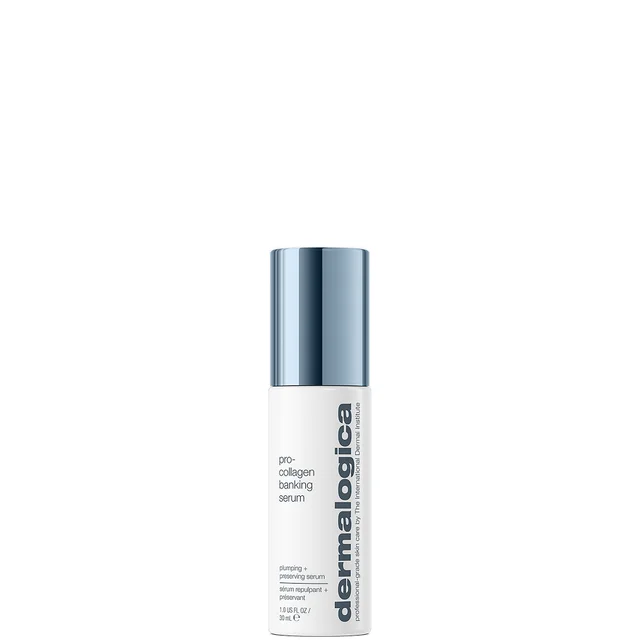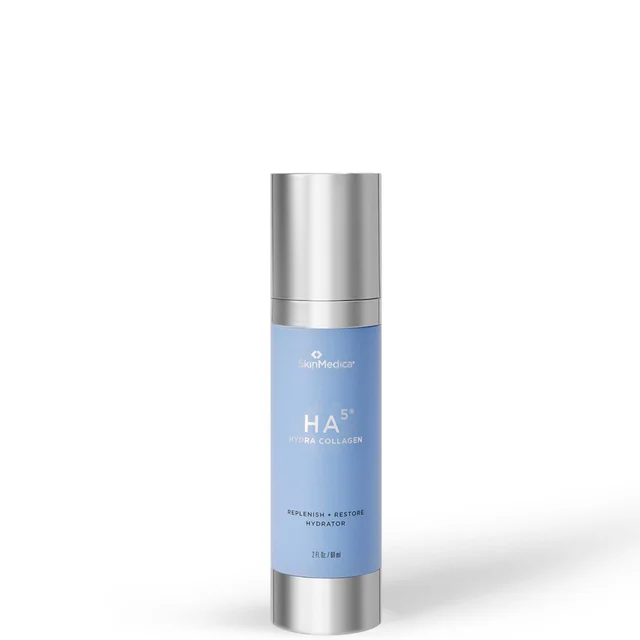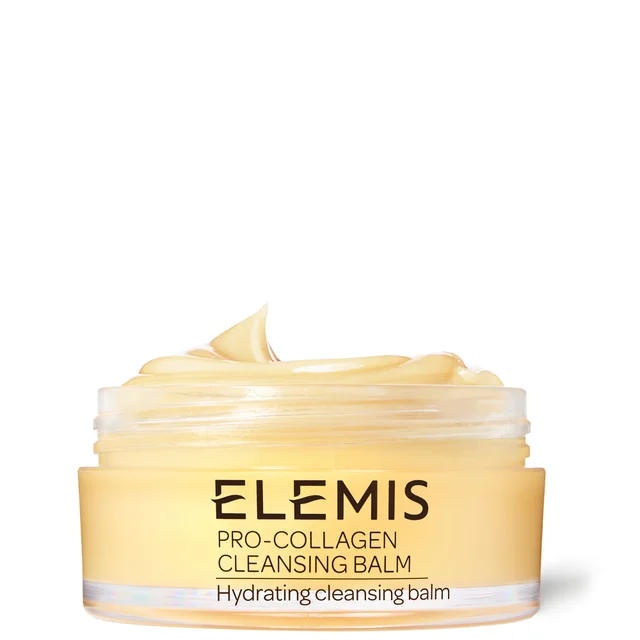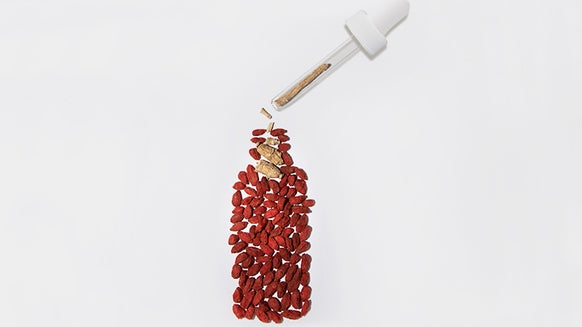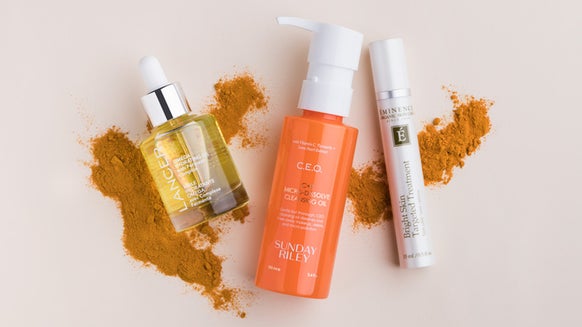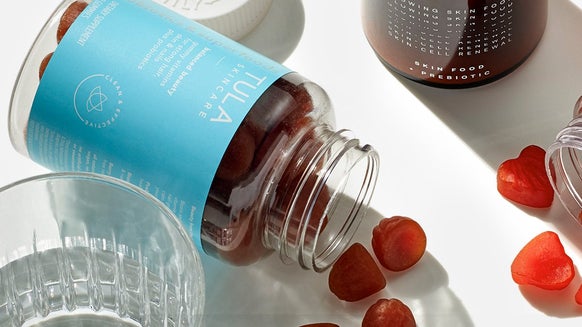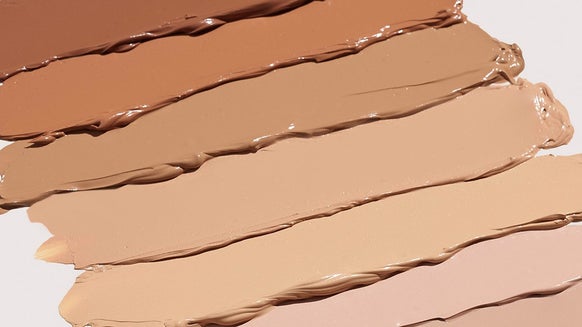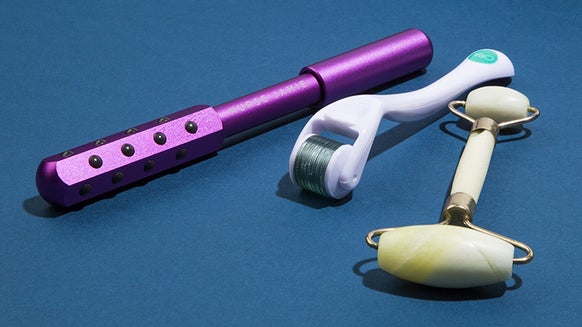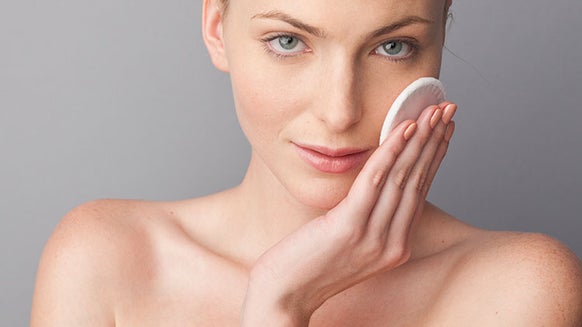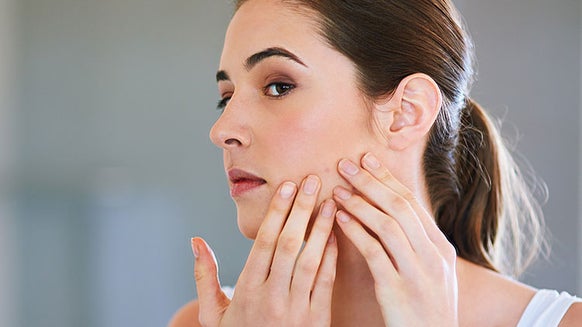Collagen Skin Care: An Ultimate Guide to Achieving That Youthful Glow
When it comes to maintaining healthy and youthful skin, collagen is king. Responsible for providing structure to the skin, this essential protein boasts of a long list of benefits and plays a major role in skin health. Now for the not-so-great news: while collagen is produced naturally by the body, aging and other external factors eventually slow this process down. The solution? Topical collagen products and supplements that promise to help your skin keep up with all its collagen needs. But what does collagen do for the skin exactly? Below, we break down how collagen works and find out which collagen-based products can level up your skincare routine.
What is Collagen?
Any time collagen is mentioned, you’ll probably notice that it’s often likened to a scaffolding. That’s because as the body’s most abundant protein, collagen functions primarily as a building block for your skin, hair, nails, and connective tissues. In other words, collagen is what holds everything together. For skin, that means helping it maintain firmness and elasticity and stay soft, supple, and youthful.
Unfortunately, your body’s steady production of collagen and other essential proteins doesn’t last forever. By the time you hit your mid- to late-20s, it begins to get bogged down by several factors, including natural aging, sun exposure, pollution, and unhealthy lifestyle habits like smoking. As your body’s collagen supply dwindles, your skin starts to exhibit signs of aging. Think wrinkles and fine lines, loss of elasticity, and sagging skin.
A quick fix to replenish lost collagen is by applying topical products and oral supplements with collagen derived from plants and animals. But because collagen is a large-sized molecule, it can be difficult to absorb through the skin.
Enter collagen peptides, also known as hydrolyzed collagen. Found in skincare products and supplements, these peptides are forms of collagen that have been broken down to make it easier for the skin and body to absorb, allowing you to stock up on much-needed collagen while improving your skin’s hydration, integrity, and overall health. Additionally, collagen peptides also deliver essential amino acids that trigger your body’s own collagen production.
Collagen Benefits for Skin
Aside from supporting youthful skin, collagen plays an integral role in overall skin health, hydration, and repair. Whether through diet, supplements, or topical skincare products, boosting collagen levels can help you achieve your goal of having a smoother, firmer, and younger-looking complexion. So, what does collagen do for your skin? Here are some of the top skin benefits of collagen to keep your complexion looking and feeling its best.
Refines Fine Lines and Wrinkles: Collagen helps maintain elasticity and smooth out the appearance of wrinkles and fine lines, helping preserve your skin’s youthful looks. Amps Hydration: Moisturizers, creams, and serums with collagen peptides help improve the skin’s moisture levels, leaving you with a soft and dewy complexion. When skin is properly hydrated, it’s less susceptible to dryness, irritation, and premature skin aging. Enhances Elasticity: The higher the collagen levels, the more elastic your skin becomes. Higher elasticity means your skin can stretch without losing firmness or sagging. Instead, it looks bouncy, plump, and more youthful. Evens Skin Tone and Texture: Collagen skin care supports the skin’s natural renewal process by creating the best environment for new skin cells to grow. As these cells regenerate, they renew the skin’s surface and reduce roughness while improving dullness and uneven skin tone. Minimizes Dark Spots and Hyperpigmentation: By strengthening the skin’s cell structure, collagen helps fade dark spots and hyperpigmentation caused by oxidative stress and UV damage. When in its peptide form, collagen can also act as a tyrosinase inhibitor and slow down the production of melanin. Speeds Up Wound Healing: Collagen is a key player in repairing scars and healing wounds, including those left behind by acne. It’s an essential component for cell and tissue regeneration and helps in repairing damage caused by injuries, inflammation, and environmental stress.
How to Incorporate Collagen into Your Skincare Routine
Collagen production drops over time, and as you advance in age, you start to lose more collagen than you make. While there’s nothing you can do to completely reverse this natural decline, collagen skin care can help replenish collagen levels while collagen-boosting ingredients can stimulate protein synthesis to keep up with your skin’s demands.
When incorporating collagen into your skincare routine, look for creams, serums, and moisturizers infused with collagen peptides as these are easier for the skin and body to absorb and harness. Pair it with active ingredients like vitamin C, retinol, peptides, growth factors, and hyaluronic acid to support your body’s own production of collagen, elastin, and other essential proteins.
Another must-do if you want to decelerate collagen loss? Sunscreen. Exposure to ultraviolet radiation hastens collagen breakdown, so the last thing you want to do is go out in the sun with bare skin. Choose a broad-spectrum formula with at least SPF 30 for daily use. Bonus points if your go-to sun protection is infused with antioxidants like vitamin C and vitamin E as these can further protect collagen from free radical damage and oxidative stress.
Topical vs. Supplements: Which is Better?
Replenishing your collagen supply can be done in two ways: topical products and oral supplements. Collagen skincare products can deliver instant hydration and plumping effects to the skin and potentially improve collagen synthesis, especially when you’re using them with high-performing ingredients that stimulate collagen production.
On the other hand, oral supplements work internally and provide the body with amino acids to produce more collagen naturally. In fact, studies show that supplements with low-molecular-weight collagen peptides reveal promising results in improving elasticity, hydration, and overall skin health when taken consistently over several months.
The best part is, you can combine both types of collagen products to maximize skin benefits, ensuring a well-rounded approach to maintaining youthful, firm skin.
Best Collagen Skincare Products
1. Dermalogica Pro-Collagen Banking Serum
Not stopping at making your skin look visibly plumper and more hydrated, this collagen serum works hard and goes the extra mile to preserve collagen and improve its production. All thanks to its star ingredient: a potent Pro-Collagen Preservation complex packed with amino acids, peptides, and antioxidants that saves collagen by maintaining and supporting a healthy skin environment for optimal production and overall skin health.
Key Ingredients: Pro-Collagen Preservation Complex, Jojoba Ester, Polyglutamic Acid, Wild Indigo Extract, Arginine PCA, Pink Carnation Flower Extract
Skin Type: All skin types
Skin Benefit(s): Preserves and protects collagen, hydrates and plumps, firms skin, reduces fine lines
Beauty Insider Tip: Apply two to three pumps twice daily to achieve youthful-looking skin.
2. SkinMedica HA5 Hydra Collagen Replenish and Restore Hydrator
Knowing how important hydration is in keeping your skin in prime condition, this serum works hard to flood your skin with hyaluronic acid. It dives deep into the skin’s layers and targets existing collagens within the skin to naturally boost hydration, giving your skin instant and long-lasting radiance, plumpness, and youthful glow.
Key Ingredients: Advanced VITISENSCE®, Hyaluronic Acid + Hydra Collagen Complex
Skin Type: All skin types
Skin Benefit(s): Imparts a dewy glow, hydrates, improves skin barrier health
Beauty Insider Tip: With its cream-to-water formula, this powerful hydrator features five forms of hyaluronic acid that deliver immediate hydration that lasts up to 48 hours.
3. Elemis Pro-Collagen Cleansing Balm
Kick off your skincare routine with this nourishing cleansing balm that melts the day away–including stubborn makeup, pollutants, and other surface impurities–while hydrating your skin and supporting collagen levels.
Key Ingredients: Star Flower Oil, Elderberry Oil, Padina Pavonica
Skin Type: All skin types
Skin Benefit(s): Promotes radiance, supports hydration, cleanses thoroughly
Beauty Insider Tip: This unique cleanser features a three-in-one texture that transforms as you apply it onto your skin. It starts off as balm, then transforms into a luxurious oil when massaged onto skin before turning into a hydrating milk after mixing with water.
4. PCA SKIN Collagen Hydrator
If you have skin that’s always struggling with dryness and dehydration, this super nourishing but extra lightweight moisturizer is for you. It’s the quickest way to soften and plump up your complexion all while helping it retain moisture more effectively and prevent early signs of aging.
Key Ingredients: Hyaluronic Acid, Aloe Vera, Sweet Almond Oil, Olive Oil, Vitamin C, Vitamin E
Skin Type: Dry, Mature
Skin Benefit(s): Firms and hydrates, promotes suppleness, imparts a healthy glow
Beauty Insider Tip: For deeper hydration, gently smooth over the skin day and night.
5. Dr Dennis Gross Skincare Hyaluronic Marine Oil-Free Moisture Cushion
When it comes to preserving your youthful visage, hydration and boosting collagen production go hand-in-hand. This lightweight and oil-free moisturizer does just that by harnessing the nourishing synergy between marine-derived amino acids and water-loving humectants, leaving your skin feeling and looking fresh, plump, and well-hydrated.
Key Ingredients: Japanese Marine Algae, Sodium Hyaluronate, Aloe Extract
Skin Type: All skin types
Skin Benefit(s):Delivers lightweight but deep hydration, soothes and relieves dry skin, supports barrier function, plumps up and refines fine lines, soothes and calms redness and inflammation
Beauty Insider Tip: Morning or night, layer this moisturizer over your favorite serum to enhance hydration.
FAQs
Is it Okay to Use Collagen Every Day?
Yes! Collagen-infused skincare products and supplements are generally deemed safe for daily use. In fact, because collagen synthesis doesn’t happen overnight, it’s important to take or apply your chosen products every day to enjoy its full benefits and maintain healthy skin.
What is the Best Source of Collagen for the Skin?
Collagen is naturally produced by the body, but it can also be sourced from plants and animals. For skincare, hydrolyzed collagen or collagen peptides from marine sources are considered most effective for skin health and elasticity because of their high bioavailability. Aside from supplements and topical products, a diet of chicken and bone broth, fish, leafy greens, beans, egg white, berries, and citrus fruits can help your body replenish and produce more collagen.
Does Collagen Help with Anti-Aging?
Absolutely! Collagen is the building block for the skin and serves as scaffold that gives skin its structure, resilience, and elasticity. It supports cell turnover, improves hydration, smooths tone and texture, and ensures skin stays firm and supple, making it incredibly important for anti-aging skincare.
Which is Better, Retinol or Collagen?
When it comes to retinol and collagen skin care, there’s no need for competition as these two work exceptionally well as a team. Retinol is an anti-aging MVP known for its ability to boost collagen production and accelerate cell renewal. Collagen peptides, on the other hand, provide the body with amino acids and raw materials needed to produce collagen and strengthen the skin’s structural integrity. Needless to say, using both ingredients together makes for the best anti-aging routine.
How Long Does Collagen Take to Work?
Collagen renewal is a slow process, so it can take eight to 12 weeks of consistent use to see a noticeable improvement in fine lines and wrinkles. That said, collagen-infused creams and moisturizers can deliver instant and long-term hydration and plumpness to the skin.
The Bottom Line
Collagen’s role in maintaining youthful and healthy skin is undeniable, and while natural production declines with age and other external factors, there are effective ways to slow down the process. Incorporating collagen skin care products into your routine, taking supplements, and eating a collagen-rich diet can all help replenish collagen levels and encourage your body to produce more of this all-too-important protein. When going the topical route, opt for formulas infused with collagen peptides as these have been broken down for easier absorption. Make sure to pair the product with ingredients that support collagen synthesis—like retinol, vitamin C, peptides, and growth factors—to further enhance its benefits. And while taking and applying collagen products can take some time to produce noticeable results, consistency will ensure your skin stays firm, smooth, and radiant for years to come.

Janeca Racho is a Journalism graduate with over 15 years of writing experience. After getting her start in public relations and advertising, she made the switch to freelance writing and began working for various lifestyle, fashion, and travel brands. Her love for all things skincare has led her to beauty reporting and research for the last ten years. Writing for several hair and beauty blogs, she reports on anti-aging staples, trending brands and products, must-have ingredients, and health and wellness.
